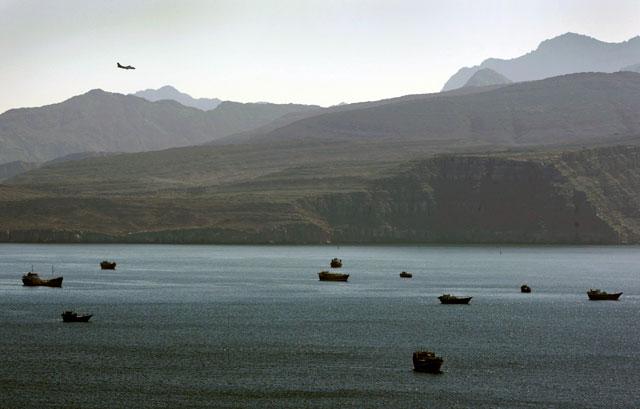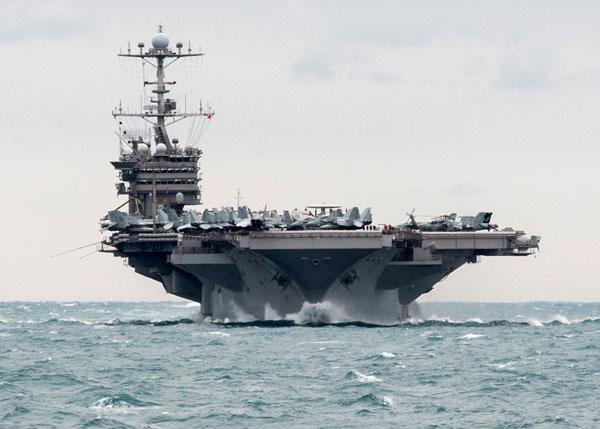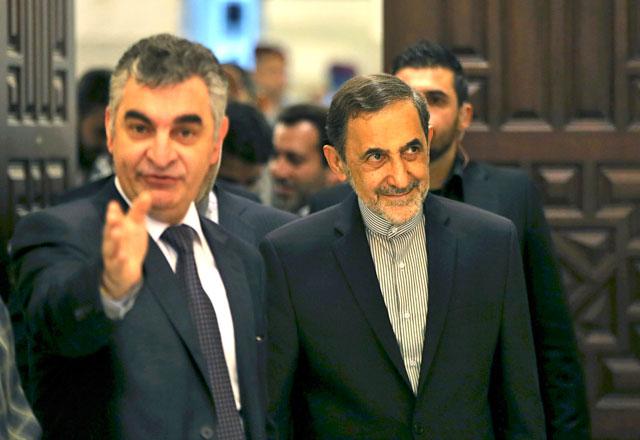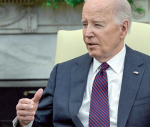You are here
US navy bolsters presence in Gulf after Iran seizure
By AFP - May 02,2015 - Last updated at May 02,2015

Washington — US warships protecting American-flagged ships in the Strait of Hormuz may extend assistance to other countries' vessels, officials said Friday, after reports of Iranian forces harassing shipping.
The expanded US naval presence is intended to signal to Iran that Washington is ready to safeguard shipping along the vital corridor, even at a moment of delicate diplomacy with Tehran over its nuclear programme, experts said.
American warships started "accompanying" US-flagged vessels in the Strait of Hormuz on Thursday in response to two incidents in less than a week in which commercial vessels were coerced or harassed by Iran's Revolutionary Guards.
Defence Secretary Ashton Carter approved the operation and "this is going to continue for an indefinite period of time," Pentagon spokesman Colonel Steven Warren said.
US Central Command, which oversees forces in the Middle East, said it was possible the assistance could be offered to other merchant ships sailing through the maritime chokepoint, a crucial route for the world's oil.
"Our current plans are for accompanying US-flagged ships, although there are discussions with other nations to include their vessels as well," Central Command spokesman Colonel Patrick Ryder told reporters.
Officials did not say what other countries might take up the offer.
The USS Farragut, a guided-missile destroyer, and three coastal patrol craft — the Thunderbolt, the Firebolt and the Typhoon — are operating in the area.
The high profile naval presence was a response to the seizure of a Marshall Islands-flagged container vessel the Maersk Tigris on Tuesday by Iran's Revolutionary Guards, who fired warning shots at the ship.
And last week, Pentagon officials said a US-flagged ship was "harassed" by Iranian patrol boats.
Iran's motives
Iranian authorities said the Maersk Tigris was confiscated over a commercial dispute. But analysts were skeptical of the explanation and speculated it could be related to Tehran's proxy war with America's Gulf Arab allies in Yemen.
Whatever Tehran's motive, said Alireza Nader, an author and analyst at the RAND Corporation think tank "the US had to demonstrate that the waters of the strait are secure and open to international shipping — whether Iran intended to send a message or not."
The tension in the Gulf coincides with a diplomatic push by major powers for a deal to curtail Iran's nuclear activities before a June 30 deadline.
The prospect of an accord has alarmed Saudi Arabia and other pro-US allies in the Gulf.
"The rest of the Middle East, Saudi Arabia especially, is worried that if there is a nuclear deal and sanctions are eased on Iran, they [the Iranians] would act more aggressively in the Arabian Gulf and beyond," Nader told AFP.
The stepped-up naval role in the Gulf is a way to show that the United States "is serious about guaranteeing security in the region despite the nuclear deal."
In Washington, Republican lawmakers said Iran's actions underline the need to closely review the terms of any nuclear deal.
The Strait of Hormuz is often described as the world's most important oil export route. About 30 per cent of all oil traded by sea moves through the narrow channel, or about 17 million barrels a day.
At its most narrow point, the strait is 33 kilometres wide, but the width of the navigable shipping lane in each direction is only 3.2km — separated by a 3.2km buffer zone.
In such a crowded channel, US military strategists have long feared a miscalculation could trigger a conflict that both governments would prefer to avoid. And this time, a potential diplomatic breakthrough is at stake.
Over the past two decades, Iran has invested heavily in a fleet of speed boats and anti-ship mines that could counter America's powerful naval forces in the Gulf.
In 2011, Iran issued threats that it might close the strait in retaliation for tougher international sanctions, prompting a warning from Washington that US forces would be ready to take action to keep shipping lanes open.
In the current case, Iran's rhetoric has been more restrained, and US officials say American warships are not poised to enter Iranian territorial waters.
"I don't think we are necessarily on the verge of confrontation," Nader said.
Related Articles
DUBAI — The US on Wednesday accused Iran of launching a “highly provocative” rocket test last week near its warships and commercial traffic
Iran is using its sea power in the Gulf to show it will not be cowed by Washington's newly assertive Arab allies, prompting critics to accuse Tehran of destabilising the region.
Iran has released the Maersk Tigris cargo vessel seized by its patrol boats in the Strait of Hormuz last week over a business dispute, Iranian authorities said Thursday.


















